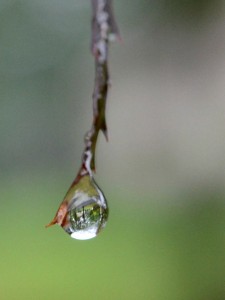A new resource provides technical guidance to municipalities on how stormwater management is impacted by climate change.
HRWC brought together stormwater managers from throughout the watershed and climate scientists to create a resource that provides a very usable quantification of how patterns in precipitation are changing in the Huron and what the implications of these changes are for managing the rain that falls on our communities.
This series of seven fact sheets takes the reader through the full story from the problem to the solutions.
Did you know that:
- Total annual precipitation has increased by 15% across Southeast Michigan and 44% in Ann Arbor.
- Heavy storms have become stronger and more frequent throughout the region.
- A new analysis of historical rainfall data has been updated and we are seeing increases in the amount of rain falling in nearly every design storm.* For example, the 1% storm (aka, 100-year storm) is 17% larger than what we have planned for.
This means current stormwater infrastructure like pipes, pumps, detention ponds and other storage systems may reach capacity more frequently than expected which can result in more flooding, more pollution in runoff and potentially costly damage.
But there are solutions. Recommendations to municipalities outlined in the fact sheets include:
- Use the new NOAA Atlas 14 rainfall frequency data for sizing new stormwater infrastructure which has more accurate design storms than other commonly used sources.
- Revisit floodplain management, detention and conveyance systems and look for weaknesses in light of changing rainfall patterns.
- Plan for a future with more rainfall and more severe storm events.
- Utilize multiple strategies to protect people and infrastructure from harm including revised standards, improved design, green infrastructure, and appropriately sized grey infrastructure.
View, download and share Stormwater Management and Climate Change.
Implications of precipitation changes in Southeast Michigan and options for response: A guide for municipalities at hrwc.org/stormwater-and-climate.



